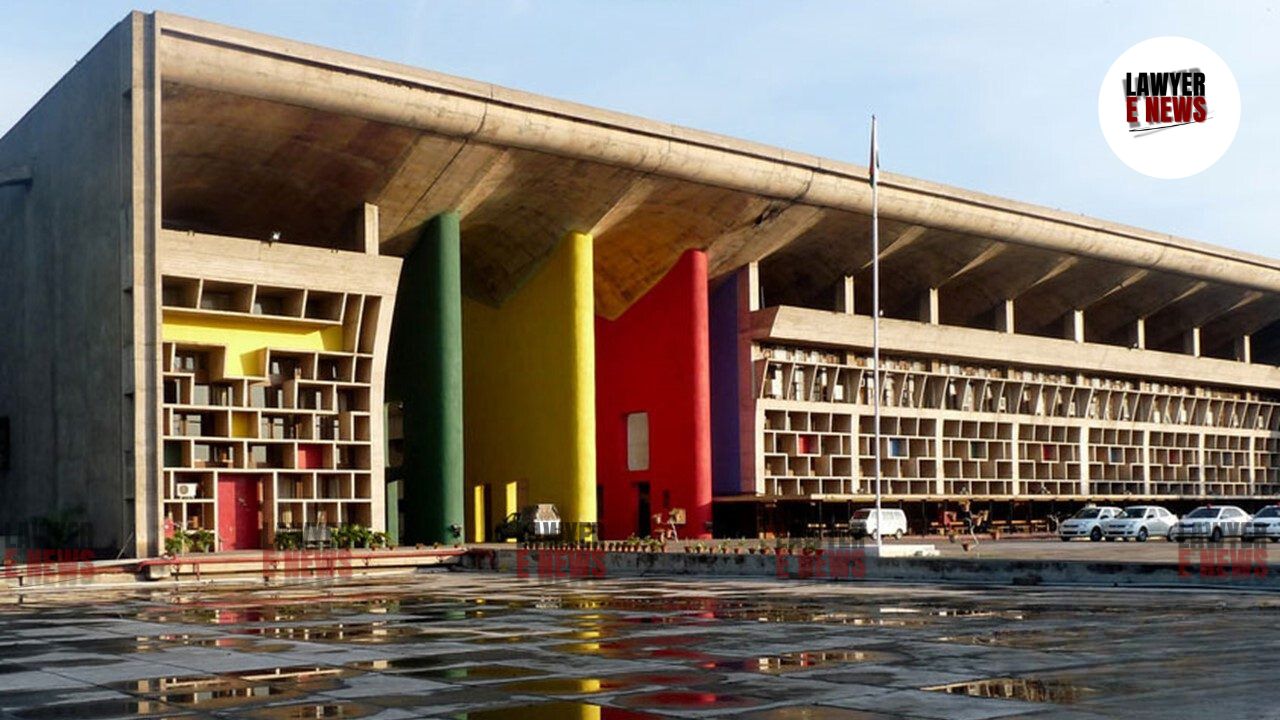-
by Admin
15 February 2026 5:01 PM



Construction of Hospitals Incidental to Charitable Purpose - Punjab and Haryana High Court quashed the retrospective cancellation of registration of M/s Punjab Institute of Medical Sciences (PIMS), Jalandhar, under Section 12AA(3) of the Income Tax Act, 1961. The court held that the Commissioner of Income Tax (CIT) lacked jurisdiction to cancel the registration of the charitable trust retrospectively for periods predating the introduction of statutory powers under the 2010 amendment. The court also restored the income tax exemptions of PIMS under Sections 11 and 12, observing that infrastructure development for hospitals and colleges is integral to achieving the trust’s charitable objectives.
The division bench comprising Justice Sanjeev Prakash Sharma and Justice Sanjay Vashisth stated that the retrospective application of Section 12AA(3) was beyond the permissible scope of law. The judgment emphasized that “construction of hospitals and medical colleges forms an essential component of providing medical relief and cannot be classified as non-charitable or commercial.”
The Punjab Institute of Medical Sciences (PIMS) was registered in 1994 under Section 12A of the Income Tax Act, with the stated purpose of establishing a medical college and hospital in Jalandhar to provide medical education and healthcare services. The trust received financial assistance and land from the Government of Punjab and other sources. Between 1994 and 2006, PIMS focused on purchasing land and constructing the required medical infrastructure.
However, on October 24, 2013, the CIT cancelled PIMS’s registration under Section 12AA(3), retrospectively effective from the financial year 2004-2005. The cancellation was based on allegations that the trust had delayed its operations and failed to demonstrate any charitable activity during the construction period. The CIT also questioned the utilization of funds and claimed that the trust had engaged in commercial activities, disqualifying it from tax exemptions.
The PIMS society challenged the cancellation before the Income Tax Appellate Tribunal (ITAT), which ruled in its favor. The tribunal held that the CIT lacked jurisdiction to invoke Section 12AA(3) retrospectively. The revenue department appealed against the tribunal’s decision before the Punjab and Haryana High Court.
The court ruled that the CIT could not cancel the registration of PIMS retrospectively for the financial year 2004-2005, as Section 12AA(3), which empowers such cancellation, was introduced only with effect from June 1, 2010. The bench referred to the legal principle that statutory powers must be applied prospectively unless explicitly stated otherwise. The judgment relied on the precedent set by the Delhi High Court in Director of Income Tax (Exemption) vs. Mool Chand Khairati Ram Trust (2011), where it was held that the CIT’s power under Section 12AA(3) applies prospectively from the date of its enactment.
The bench observed that “the retrospective cancellation of registration violates fundamental principles of law and is therefore illegal and unjustified. The CIT lacked the authority to cancel the registration for periods where the statutory power did not exist.”
The court elaborated on the definition of "charitable purpose" under Section 2(15) of the Income Tax Act, which includes education, medical relief, and other activities for the general public's welfare. It held that the construction of medical colleges and hospitals is incidental to achieving the charitable objectives of providing medical relief and education. Rejecting the revenue’s argument that infrastructure development constituted a commercial activity, the court stated that funds utilized for such purposes must be viewed as integral to the trust’s mission.
The judgment cited the Supreme Court’s ruling in Ahmedabad Urban Development Authority vs. Assistant Commissioner of Income Tax (Exemptions) (2022), which clarified that incidental activities undertaken to achieve charitable objectives do not disqualify a trust from its exempt status under Sections 11 and 12.
The court noted that PIMS had set apart funds specifically for the construction of the medical college and hospital and had adhered to the statutory requirement under Section 11(2) to utilize these funds within the stipulated time. It held that the construction activities were necessary to fulfill the trust’s objectives and could not be construed as diversion of funds or non-charitable usage.
The High Court also rejected the denial of exemptions under Section 11 for PIMS during the construction period. The revenue department had argued that the trust’s delay in commencing operations indicated that it was not actively engaged in charitable activities. The court countered this argument by stating that the establishment of medical infrastructure is an essential prerequisite for fulfilling the trust’s purpose and that such delays cannot be grounds for denying exemptions.
The judgment further observed that “the trust had consistently utilized its funds for achieving its charitable objectives, and the revenue failed to prove any diversion of funds for non-charitable activities.”
The court held that the imposition of penalties under Section 271(C) of the Income Tax Act, which pertains to the concealment of income or furnishing of inaccurate details, was unwarranted. Since the primary issues of cancellation of registration and denial of exemptions had been resolved in favor of PIMS, the penalty provisions did not apply.
The High Court allowed the appeals filed by PIMS (ITA Nos. 271, 274 of 2014, and 33 of 2022) and restored the trust’s registration and exemptions under Sections 11 and 12. The revenue department’s appeals (ITA Nos. 52, 164 of 2017, and others) were dismissed. The court clarified that activities such as infrastructure development for medical institutions are incidental to the primary charitable purpose and cannot be treated as commercial.
The judgment serves as a crucial precedent for charitable trusts and institutions engaged in infrastructure development, affirming that such activities are integral to their charitable missions. It also reiterates the principle that statutory amendments, such as Section 12AA(3), cannot be applied retrospectively unless expressly stated.
Date of Decision: December 4, 2024
